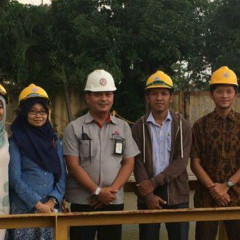Prediction of recovery energy from ultimate analysis of waste generation in Depok City, Indonesia
Mega Mutiara Sari1, Iva Yenis Septiariva2, Eva Nur Fauziah1, Kuntum Khoiro Ummatin3,
Qurrotin Ayunina Maulida Okta Arifianti3, Niswatun Faria3, Jun-Wei Lim4,
I Wayan Koko Suryawan1
1Department of Environmental Engineering, Faculty of Infrastructure Planning, Universitas Pertamina, Jakarta, Indonesia
2Civil Engineering Study Program, Faculty of Engineering, Universitas Sebelas Maret, Surakarta, Indonesia
3Engineering Management, Industrial and Agroindustry Technology Faculty, Universitas Internasional Semen Indonesia,
Gresik, Indonesia
4Department of Fundamental and Applied Sciences, Faculty of Science and Information Technology, University Teknologi
PETRONAS, Perak, Malaysia
Abstract
Refuse derived fuel (RDF) is an environmentally friendly renewable fuel developed to reduce waste generation. RDF can consist of various kinds of waste such as paper and gardens. One of the critical parameters is the chemical element and calorific value. The purpose of this study was to determine the potential for waste reduction and the relationship of ultimate
longevity in RDF to the calorific value. This study's paper and garden waste mixture were P0 (100% paper), P25 (75% paper and 25% garden), P50 (50% paper and 50% garden), P75 (25% paper and 75% garden), and P100 (100% garden). The calorific value of the mixture can reach 3.6-5.2 kWh/kg. Simultaneously the relationship of ultimate elements nitrogen (N), hydrogen (H), oxygen (O), and ash affects the heating value of RDF. Sampling the application in Depok City can reduce waste by 6.67%, with the potential for electrical energy from paper and garden wastes of 358,903.8 kWh and 48,681 kWh, respectively. This shows that this energy waste can supply 0.1% of the total daily electricity demand in Depok City.
Full Paper: Download Full Paper
Plagiarism Check: Download Check Plagiarism
Peer Review: Download Peer Review


